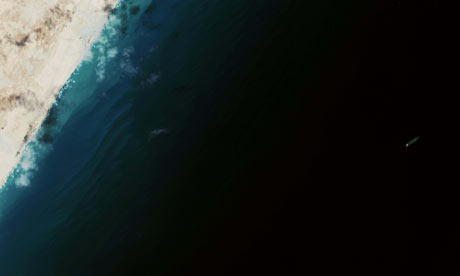Friday, November 28, 2008
Tuesday, November 25, 2008
Alone in the universe?
A mile and a half (two and a half kilometers) underwater, a remote
control submersible's camera has captured an eerie surprise: an
alien-like, long-armed, and—strangest of all—"elbowed" squid.
Click here
control submersible's camera has captured an eerie surprise: an
alien-like, long-armed, and—strangest of all—"elbowed" squid.
Click here
Monday, November 03, 2008
Greatest Bubble in History: Warnings ignored in US and Ireland
 Figure 1 Heavy Reliance on Building Investment from a review of the Irish Economy published by the IMF in 2006. It observed that growth had become increasingly unbalanced in recent years, with heavy reliance on building investment, sharp increases in house prices, and rapid credit growth, especially to property-related sectors. At the same time, competitiveness had eroded, reflecting the combination of faster wage growth in Ireland compared to its trading partners, declining productivity growth, and the appreciation of the euro against the U.S. dollar. Directors observed that Ireland's small, highly open economy was also vulnerable to external shocks.
Figure 1 Heavy Reliance on Building Investment from a review of the Irish Economy published by the IMF in 2006. It observed that growth had become increasingly unbalanced in recent years, with heavy reliance on building investment, sharp increases in house prices, and rapid credit growth, especially to property-related sectors. At the same time, competitiveness had eroded, reflecting the combination of faster wage growth in Ireland compared to its trading partners, declining productivity growth, and the appreciation of the euro against the U.S. dollar. Directors observed that Ireland's small, highly open economy was also vulnerable to external shocks. Greatest Bubble in History in Developed World: The Economist magazine said in June 2005, that never before had real house prices risen so fast, for so long, in so many countries. It asked: What if the housing boom now turns to bust? In Ireland, vacant housing units rose from 140,000 in 2002 to 230,000 in 2005 according to Davy Stockbrokers, 266,000 according to the April 2006 Census and an estimated 350,000 today, according to the Property Pin online forum.
Davy Stockbrokers said in 2005, that over 40% of houses built in Ireland in the previous two years were lying vacant as second homes, holiday homes or unlet investment properties. The Economist said in 2005 that rising property prices helped to prop up the world economy after the stockmarket bubble burst in 2000 and it estimated that the total value of residential property in developed economies rose by more than $30 trillion over the previous five years, to over $70 trillion, an increase equivalent to 100% of those countries' combined GDPs. The surge not only dwarfed any previous house-price boom, it was larger than the global stockmarket bubble in the late 1990s (an increase over five years of 80% of GDP) or America's stockmarket bubble in the late 1920s (55% of GDP). The Economist said that the rise looked like the biggest bubble in history.
Read On...
|
|
Subscribe to:
Posts (Atom)

